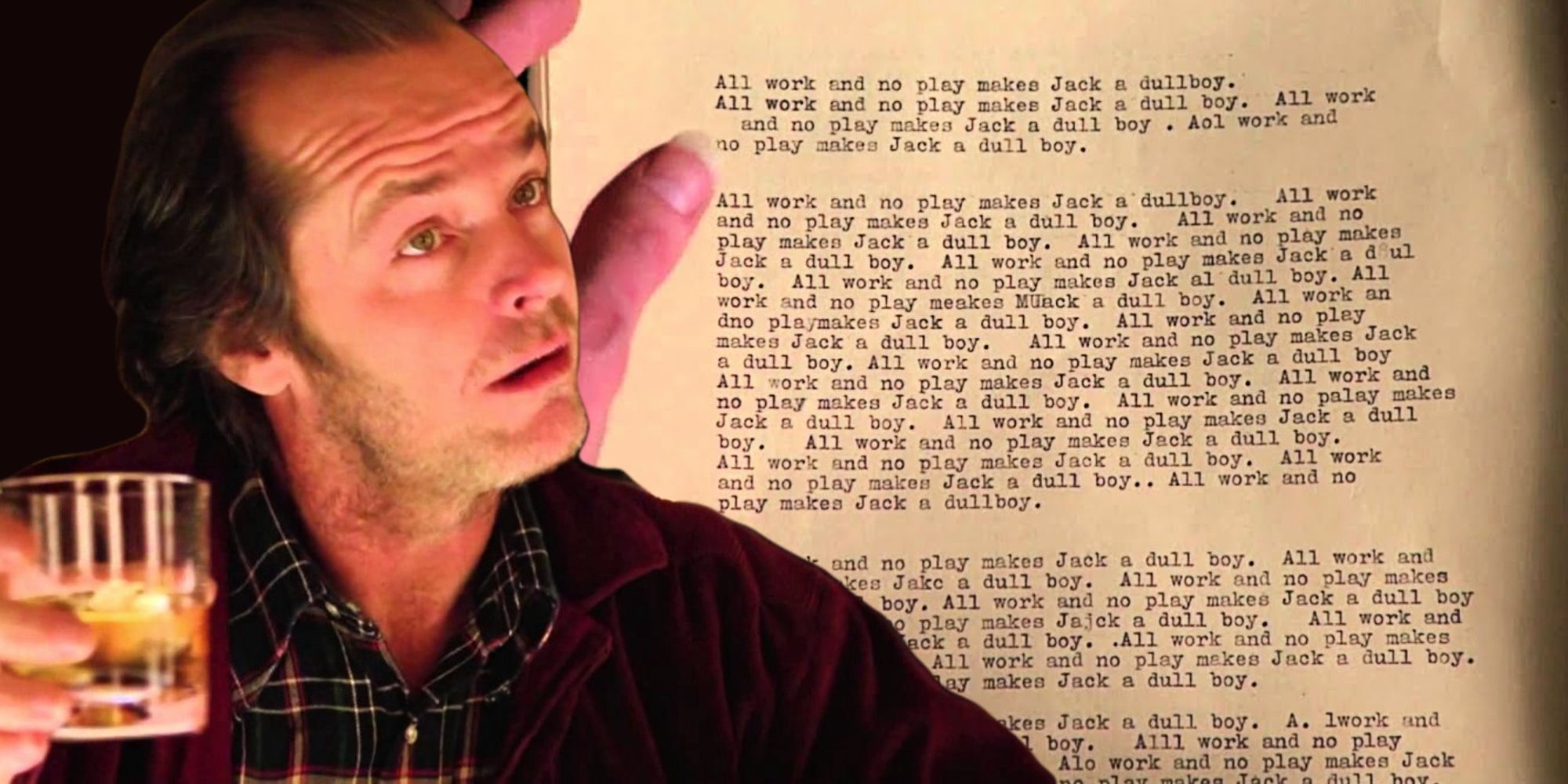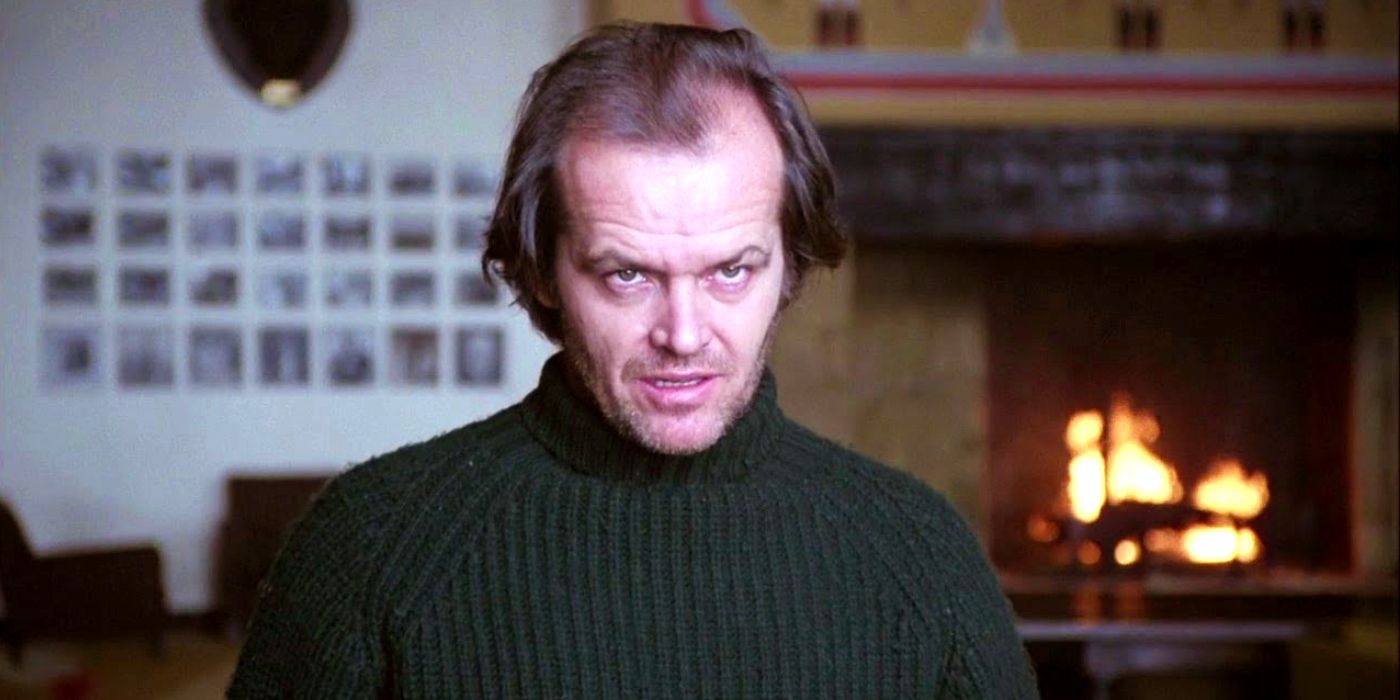
What does the phrase “all work and no play” mean in the context of Jack Torrance in Stanley Kubrick’s masterful rendition of Stephen King’s The Shining? Kubrick’s The Shining chronicles the tale of a struggling writer, Jack Torrance (Jack Nicholson), who decides to moves into The Overlook Hotel with his family, in an attempt to experience solace to bolster creativity. What ensues instead is a mad dance with the dead, in which Jack feels an inexplicable connection to the hotel’s bloody history, losing any semblance of sanity in the process.
The proverb “All work and no play makes Jack a dull boy” was first recorded in 1659, which meant that the lack of balance between work and relaxation would render a person dull and stunted from a holistic standpoint. It is interesting to note that the phrase is often followed by a lesser-known line discarded during its travel through time, which says: “All play and no work makes Jack a mere toy.” When both phrases are applied to the context of The Shining, wherein Jack's wife, Wendy (Shelley Duvall) finds a stack of Jack’s manuscript repeating the titular proverb unending times, they take on a more poignant, ominous hue, reflecting Jack’s descent into madness.
The reason why Jack feverishly repeats this phrase on his typewriter can be attributed to Freewriting, a writing technique that involves jotting down streams of consciousness in an effort to bypass writer’s block. Jack, faced with creative sterility and a fragmented consciousness exacerbated by drinking, types this proverb with the hope that it would inspire him to etch a "play", or any form of literary output. This is when persistence transforms into obsession, leading Jack to repeat the phrase over and over, trapping himself in a cycle of meaningless repetition and self-sabotage, much like The Overlook’s cycle of repeating murderous history involving the caretaker.

In an interview with Michel Ciment, Kubrick states that Jack is “bitter about his failure as a writer”, making him utterly susceptible to the hotel’s influence and ever-ready to assume to role of deranged caretaker who slaughters his own family. This ever-present urge, coupled with his contempt for Wendy and his son Danny, propels him towards his fate, wherein the repeated proverb acts as the climax of his psychological fragmentation. The importance of “all work and no play” has been, by no means, understated by Kubrick, who, being the perfectionist he is, came up with completely different foreign language versions for the phrase. For instance, the German version displays the phrase as “never put off until tomorrow what can be done today”, which comes close to the original’s meaning, but lacks its rich layers of interpretation.
Moreover, if the follow-up phrase “all play and no work makes Jack a mere toy” is applied to Jack’s mental state in The Shining, it points to the fact that he, in fact, in not getting any real work done, as he is simply playing into the hotel’s motivations to render him dangerously frustrated and constantly on-edge. Also, Jack is a “mere toy” in the history of The Overlook Hotel, as the hotel’s thirst for bloodshed has invariably lulled in many “Jack"’s in the past, and will continue to do so in the future, until the structure and its many ghosts are burnt to the ground, as shown in Mike Flanagan’s Doctor Sleep.
from ScreenRant - Feed https://ift.tt/3oPXRXx





No comments: